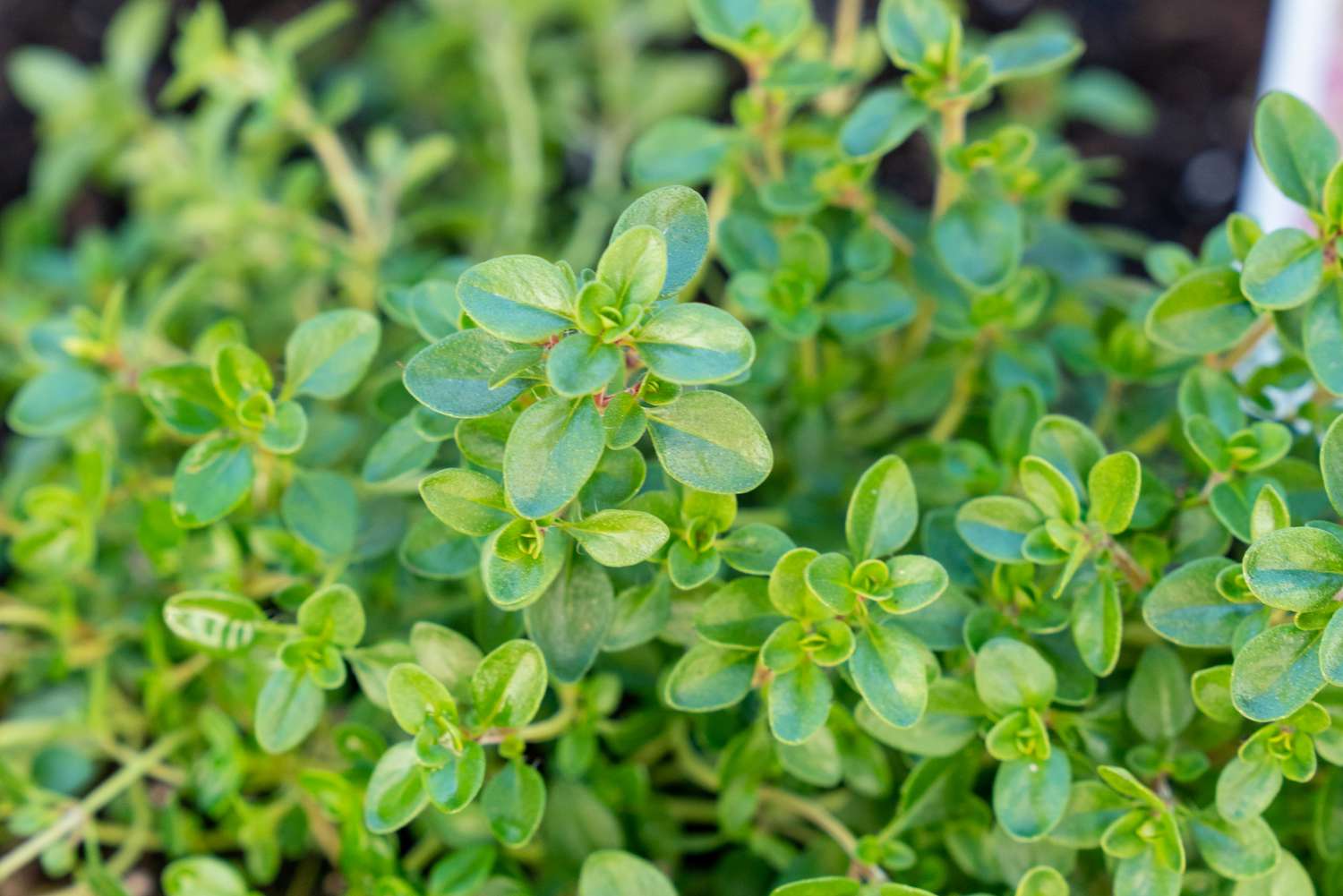Rosemary & Thyme: Benefits, Uses, And How To Grow Them At Home

Table of Contents
The Amazing Benefits of Rosemary & Thyme
Rosemary and thyme, often used together in cooking and medicine, boast a wide array of health benefits thanks to their potent bioactive compounds.
Health Benefits of Rosemary
Rosemary, with its distinctive piney aroma, is a powerhouse of antioxidants. These antioxidants combat free radicals, protecting your cells from damage and potentially reducing the risk of chronic diseases.
- Cognitive Enhancement: Studies suggest rosemary may improve memory and cognitive function. Its aroma is often used in aromatherapy to promote alertness and focus.
- Anti-inflammatory Effects: Rosemary possesses anti-inflammatory properties, which may help alleviate pain and inflammation throughout the body. Research is ongoing to explore its potential in managing inflammatory conditions.
- Aromatherapy Uses: Rosemary essential oil is widely used in aromatherapy to reduce stress, improve mood, and alleviate headaches. Its invigorating scent can be incredibly uplifting.
Health Benefits of Thyme
Thyme, with its slightly lemony and earthy flavor, is known for its potent antibacterial and antifungal properties.
- Immune System Support: Thyme's immune-boosting capabilities are well-documented, helping your body fight off infections and illnesses.
- Respiratory Health: Traditionally used to alleviate coughs and congestion, thyme may help soothe respiratory ailments. Its expectorant properties can help clear the airways.
- Traditional Medicine: Thyme has a long history of use in traditional medicine for various purposes, highlighting its diverse therapeutic potential.
Combined Benefits of Rosemary & Thyme
The synergistic effects of using rosemary and thyme together are noteworthy. Their combined antioxidant, anti-inflammatory, and antimicrobial properties offer a powerful combination for supporting overall health and well-being. Including both herbs in your diet or using them in aromatherapy blends can amplify their individual benefits.
Culinary Uses of Rosemary & Thyme
Beyond their health benefits, rosemary and thyme are indispensable culinary herbs, adding depth and complexity to a wide range of dishes.
Rosemary in the Kitchen
Rosemary's strong, piney flavor pairs beautifully with roasted meats, particularly lamb and chicken.
- Roasted Meats: Rosemary sprigs tucked under the skin of roasted chicken or sprinkled over a leg of lamb create an unforgettable flavor experience.
- Soups & Stews: A few sprigs of rosemary added to soups and stews impart a rich, earthy flavor.
- Infused Oils & Vinegars: Rosemary can be infused into oils and vinegars to create flavorful dressings and marinades.
- Baked Goods: Rosemary adds a unique touch to breads, focaccia, and other baked goods.
Thyme in the Kitchen
Thyme's more subtle, lemony flavor complements a vast array of dishes.
- Savory Dishes: Thyme is a classic addition to soups, stews, and sauces, adding a layer of warmth and complexity.
- Poultry, Fish & Vegetables: Thyme enhances the flavor of poultry, fish, and vegetables, adding a savory note to both simple and complex recipes.
- Marinades & Rubs: Thyme is a key ingredient in many flavorful marinades and rubs for meats and poultry.
- Herbal Teas & Blends: Thyme is often included in herbal teas and blends, adding flavor and potential health benefits.
Rosemary & Thyme Recipes
To further inspire your culinary creativity, explore countless online recipes featuring these versatile herbs. A simple search for "Rosemary Roasted Chicken" or "Thyme and Lemon Roasted Vegetables" will yield many delicious results.
Growing Rosemary & Thyme at Home: A Step-by-Step Guide
Growing your own rosemary and thyme is surprisingly easy and rewarding, providing a continuous supply of fresh herbs for your culinary creations and wellness practices.
Choosing the Right Location & Soil
Both rosemary and thyme thrive in sunny locations with well-drained soil.
- Sunlight: Aim for at least 6-8 hours of direct sunlight per day.
- Soil: Use well-draining soil, avoiding heavy clay soils that retain too much moisture. A sandy loam mix is ideal.
- Soil pH: A slightly alkaline soil pH (around 6.5-7.5) is best suited for these herbs.
Planting & Propagation
Rosemary and thyme can be propagated from seeds or cuttings.
- Seeds: Sow seeds indoors 6-8 weeks before the last frost.
- Cuttings: Take stem cuttings in spring or summer and root them in moist potting mix.
- Planting Depth & Spacing: Plant seedlings or cuttings at the same depth they were growing previously and space them about 12-18 inches apart.
- Watering: Water regularly, especially during dry spells, but avoid overwatering, which can lead to root rot.
Care & Maintenance
With proper care, rosemary and thyme will flourish in your garden.
- Pruning: Regular pruning encourages bushier growth and prevents the plants from becoming leggy. Prune after flowering.
- Pest & Disease Control: These herbs are generally pest-resistant, but keep an eye out for common garden pests and diseases.
- Winter Protection: In colder climates, provide winter protection, such as mulching or bringing potted plants indoors.
Harvesting Rosemary & Thyme
Harvest rosemary and thyme throughout the growing season.
- Harvesting Time: The best time to harvest is before the plants flower, typically in spring or early summer.
- Preservation: Dry the herbs by hanging them upside down in a cool, dark, and well-ventilated area. Alternatively, you can freeze them for later use.
Conclusion: Embrace the Aromatic Power of Rosemary & Thyme
Rosemary and thyme offer a captivating blend of culinary and medicinal benefits, making them valuable additions to any home garden and kitchen. From enhancing the flavor of your dishes to supporting your overall health, these aromatic herbs provide a wealth of advantages. Start growing your own rosemary and thyme today and experience the health and culinary benefits firsthand! Find high-quality seeds and starter plants at your local garden center or online retailers. Embrace the aromatic power of these versatile herbs and enjoy their delicious flavors and potent health benefits.

Featured Posts
-
 Nikola Jokics One Handed Flick Highlight Of Nuggets Blowout Win Over Jazz
May 31, 2025
Nikola Jokics One Handed Flick Highlight Of Nuggets Blowout Win Over Jazz
May 31, 2025 -
 Hospitalization Of Former Nypd Commissioner Bernard Kerik Doctors Expect Full Recovery
May 31, 2025
Hospitalization Of Former Nypd Commissioner Bernard Kerik Doctors Expect Full Recovery
May 31, 2025 -
 Thompsons Monte Carlo Misfortune A Look At His Struggles
May 31, 2025
Thompsons Monte Carlo Misfortune A Look At His Struggles
May 31, 2025 -
 Canadian Red Cross Response To Manitoba Wildfires Donate And Volunteer
May 31, 2025
Canadian Red Cross Response To Manitoba Wildfires Donate And Volunteer
May 31, 2025 -
 Live Classifiche E Aggiornamenti In Tempo Reale Dal Giro D Italia
May 31, 2025
Live Classifiche E Aggiornamenti In Tempo Reale Dal Giro D Italia
May 31, 2025
